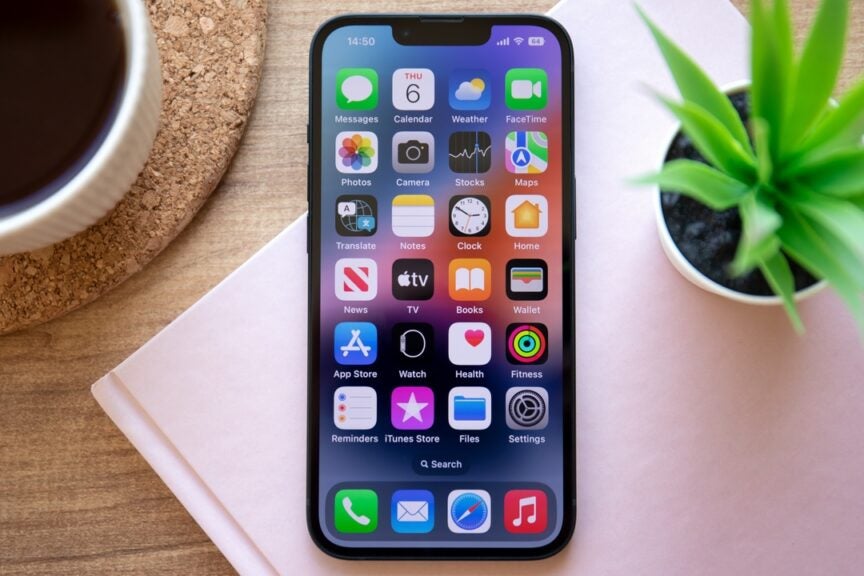Apple’s Strategic Intelligence Move: Enhancing iPhone Sales in China and Europe
In the fast-paced world of technology, companies must continually innovate to retain their competitive edge. Apple, a leader in the smartphone market, is making waves with its recent strategic intelligence moves, particularly targeting crucial markets like China and Europe. According to Gene Munster of Deepwater, these advanced intelligence features could be a game changer for iPhone sales, reshaping not only Apple’s market position but also the overall competitive landscape in the smartphone industry.
The Significance of Strategic Intelligence in Tech
Strategic intelligence refers to the ability of a company to gather, analyze, and utilize information to make informed decisions. In the context of Apple’s iPhone sales, this means understanding consumer behavior, market trends, and technological advances to enhance product offerings. As the smartphone market matures, the differentiation between brands has increasingly relied on innovative features and user experience.
Apple’s emphasis on intelligence features, such as advanced artificial intelligence (AI) capabilities, machine learning, and personalized user experiences, is pivotal. With a focus on enhancing privacy and security, alongside user-centric functionalities, Apple is positioning itself as a frontrunner in the evolving landscape of smartphone technology.
Market Dynamics: China and Europe
China and Europe represent critical markets for Apple, both in terms of revenue generation and brand influence. In recent years, competition from local brands in China, such as Huawei and Xiaomi, has intensified. These companies have been quick to adopt advanced technology and offer competitive pricing. Meanwhile, Europe presents its own challenges with a blend of established brands and emerging competitors.
By rolling out advanced intelligence features, Apple aims to fortify its market presence in these regions. The strategic move comes at a time when consumers are becoming more discerning about their smartphone choices. They seek not only high-performance devices but also ones that respect their privacy and enhance their daily lives.
Advanced Features: A Closer Look
Apple’s new features are poised to appeal to a wide range of consumers. Here are some key aspects of the strategic intelligence move:
- Enhanced Personalization: Apple is integrating AI to provide users with personalized experiences, from tailored app suggestions to adaptive battery management, optimizing device performance based on user habits.
- Improved Security: With increasing concerns over data privacy, Apple’s commitment to secure user data through advanced encryption methods and privacy-focused features is likely to resonate well with consumers in both China and Europe.
- Smart Home Integration: Apple is expanding the capabilities of its HomeKit platform, allowing seamless integration with smart home devices, thus appealing to tech-savvy users who prioritize home automation.
- Augmented Reality (AR): With the ongoing development of AR technologies, Apple’s focus on integrating AR features into iPhones can enhance user engagement, particularly in gaming and education sectors.
The Competitive Edge: Why This Matters
In an industry where consumer loyalty can shift rapidly, Apple’s strategic intelligence move could be crucial in maintaining its competitive edge. By offering unique features that are difficult for competitors to replicate, Apple is not just selling a phone; it’s selling a comprehensive ecosystem that connects seamlessly with various aspects of a user’s life.
Moreover, as the smartphone market continues to evolve, the integration of AI and machine learning into everyday devices is becoming a standard expectation. Apple’s proactive approach to embedding these technologies could set a new benchmark that competitors will need to meet or exceed.
Consumer Expectations and Market Response
Consumer expectations are changing. Today’s smartphone users are not just looking for high specifications; they are also interested in how these specifications translate into real-world benefits. The adoption of advanced intelligence features aligns perfectly with these evolving expectations. Apple’s strategy emphasizes not just what the iPhone can do, but how it can make users’ lives easier, safer, and more enjoyable.
As reports suggest an increase in demand for smartphones equipped with AI capabilities, Apple’s move could attract new customers while retaining existing ones. The anticipation surrounding new releases can create a buzz that boosts sales, particularly in high-demand markets like China and Europe.
While the strategic intelligence move has the potential to enhance iPhone sales, Apple must navigate several challenges. The smartphone market is increasingly saturated, with numerous brands fighting for consumer attention. Additionally, geopolitical tensions, particularly between the U.S. and China, could impact sales strategies and consumer sentiment.
Apple must also ensure that its innovations resonate with local cultures and preferences. Customizing marketing strategies to align with the diverse consumer bases in China and Europe is crucial. Understanding local trends, consumer behavior, and preferences will be essential for Apple to maximize the impact of its advanced features.
Looking Ahead: The Future of Apple in the Smartphone Market
As Apple rolls out these advanced intelligence features, the company is not just aiming for a sales boost; it’s setting the stage for the future of the smartphone industry. By prioritizing user experience, privacy, and technological innovation, Apple could redefine what consumers expect from their devices.
Gene Munster’s prediction highlights the potential for Apple to significantly impact the smartphone market in China and Europe. If successful, this strategic shift may lead to a new era of smartphone competition, where intelligence and user-centric design become paramount.
Conclusion: A Game Changer for iPhone Sales
In summary, Apple’s strategic intelligence move is more than just a marketing tactic; it’s a comprehensive strategy aimed at enhancing iPhone sales in critical markets like China and Europe. By focusing on advanced intelligence features, Apple is not only seeking to boost its sales figures but also to reshape the competitive dynamics of the smartphone industry. As consumers continue to seek devices that offer both functionality and security, Apple’s innovations could very well position the company as a leader in the next phase of smartphone evolution.
As we look to the future, it will be fascinating to observe how Apple’s strategic moves unfold and whether they will indeed alter the landscape of smartphone sales in these pivotal markets.
See more Future Tech Daily

